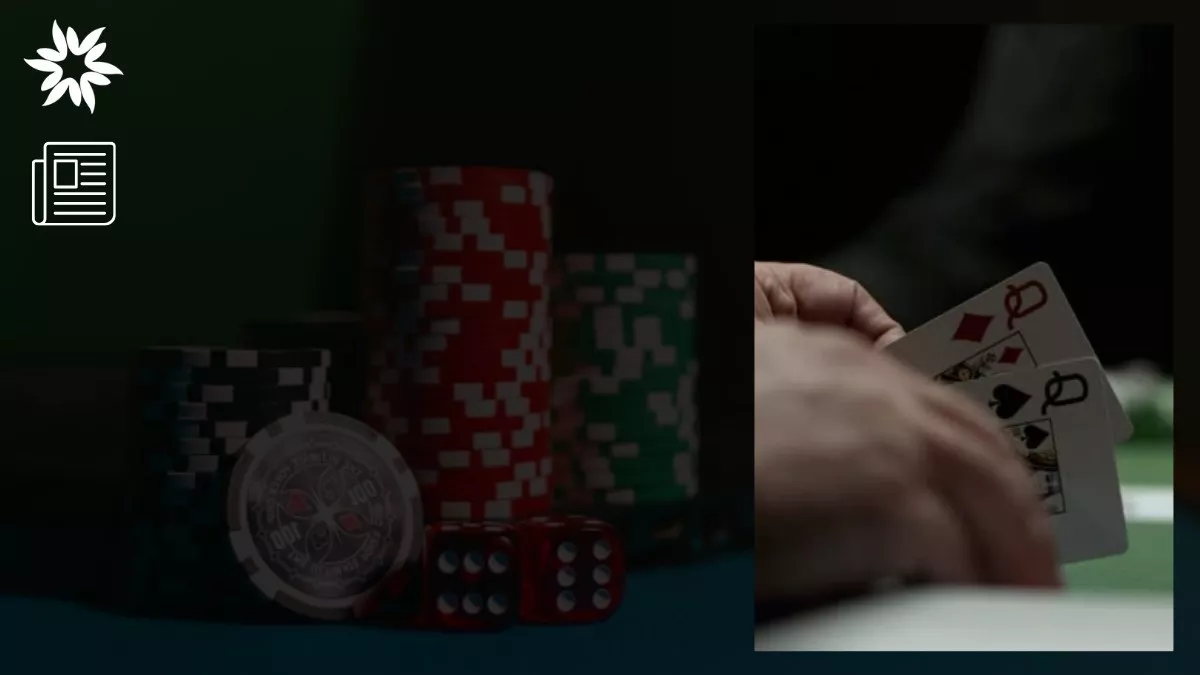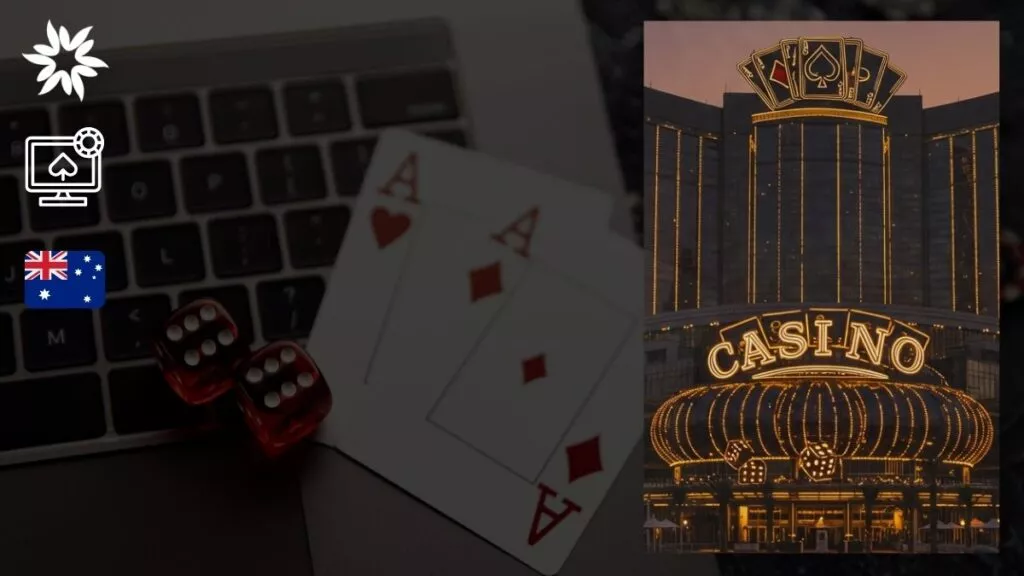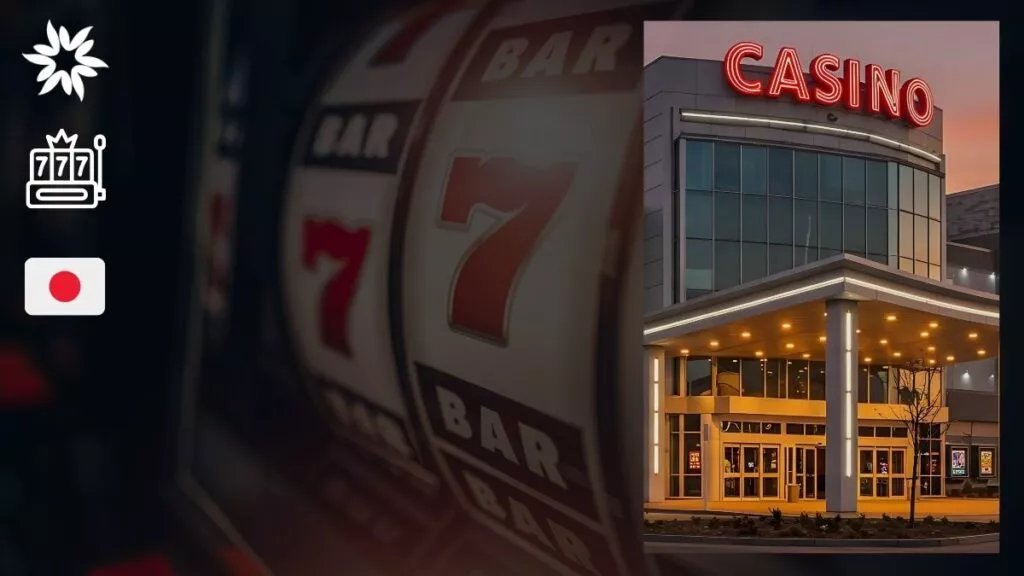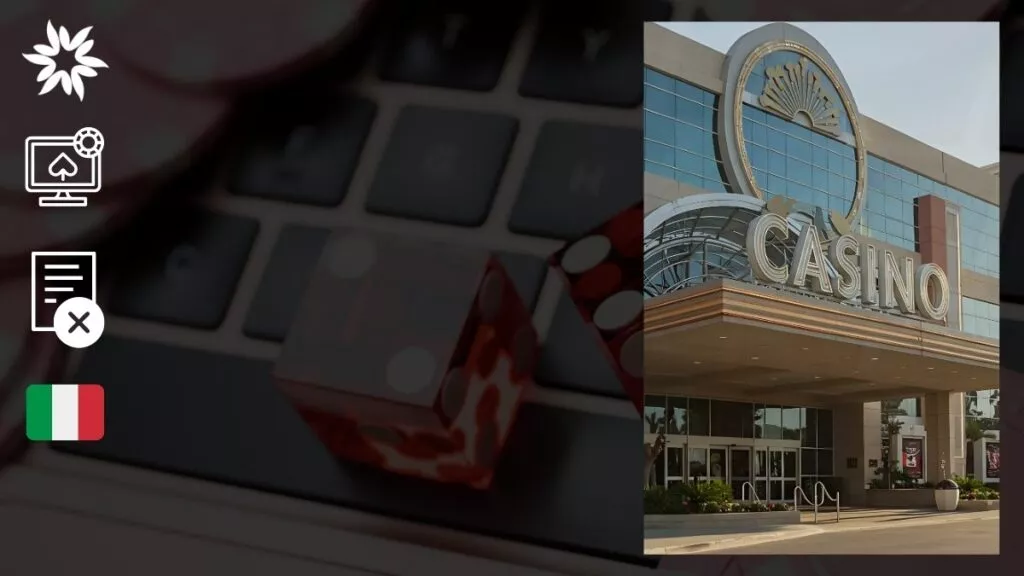Social media is where the latest trends are born these days, whether it’s fashion or political views.
Now, a new and potentially concerning subject is becoming more prominent: the rising spread of viral gambling trends.
Fuelled by the increasing accessibility of online betting platforms and the influential voices of social media personalities, gambling is shedding its traditional taboo for many.
That’s especially the case for younger audiences who mostly use social media like Instagram and TikTok.
Let’s take a look at gambling trends on social media.
The Power of Social Media in Shaping Trends
How many times has it happened that you’ve scrolled through your Instagram or TikTok account, found a specific trend that you spent a few seconds watching, and ended up seeing similar content for days?
Well, that’s the algorithm’s work right there.
Social media algorithms are designed to prioritize user engagement, which helps spread content that you or other audiences can relate to quickly.
It’s a complex system that analyzes user data, including likes, shares, comments, and watch time, to determine which content is most likely to keep you engaged. Basically, it’s their way of ensuring you keep scrolling, which ups their app usage statistics.
So, when social media gambling challenges find their way into your feed, and you interact with them, the algorithm takes note. You’ll likely continue to find similar content the more you scroll, and the next thing you know, your feed will contain so many gambling-related videos.
Types of Gambling Trends 2025
Speaking of gambling-related content, what exactly are the types of betting videos that social media platforms suddenly seem to have so much of? Here are some of today’s viral gambling trends:
Humorous or Relatable Gambling Content
These videos use humor, memes, or relatable scenarios to depict the experience of gambling. Usually, people in these viral videos would focus on the emotional rollercoaster of wins and losses or the struggles of resisting the urge to bet.
Betting Streak Challenges
These challenges involve attempting to build an impressive streak of consecutive wins, whether in sports betting, casino games, or other gambling activities.
With this, an influencer might create a series like “10 Days of Winning Bets” with dramatic updates on their progress to keep their followers engaged.
They can also start a series of playing a particular casino game until they hit a massive win or the jackpot.
Live Gambling Streams
This is when someone streams their gameplay session.
They might be playing casino games like poker or slots. Some would also stream in-game sports betting while watching a live football or basketball match.
Influencers like Trainwreckstv on Twitch are the ones that do this. They live-stream their high-stakes gambling sessions to entertain viewers with the excitement of live wins and losses. This also promotes gambling activities in a way that viewers might mimic their high bets.
Gambling Tutorials and Strategies
Some influencers create content that teaches viewers how to gamble effectively. They might be sharing tips and strategies for games like blackjack or roulette. This type of content is most prominent on sites like YouTube, but TikTok also has short-form videos on it.
On YouTube, some of the biggest channels with gambling tutorials are Gambler Casino and Vegas Matt. On TikTok, users like BCSlots, Lady Luck HQ, and CowboySlots are some of the popular names for this.
Crypto Gambling
It can be argued that crypto trading is a gambling itself, but its use on online gambling sites has also become a major trend these days.
It mostly appeals to tech-savvy audiences and many influencers in the crypto space, like BitBoy Crypto would discuss gambling platforms that accept Bitcoin or Ethereum.
Why Gambling Companies Are Working with Influencers
Gambling advertisements have long been a staple of traditional platforms like television, radio, and print media. These ads often feature high-profile celebrities, sports personalities, or even entire teams to create a strong association between the brand and success.
There’s Usain Bolt, who has been an ambassador for PokerStars, and Michael Owen, who has also endorsed BetVictor.
These types of traditional gambling ads remain effective since they still reach millions of viewers, especially during major sports events when these ads are usually placed.
However, even if they can still be impactful, there is such a thing as advertising skepticism. This refers to the growing tendency of consumers to doubt or distrust the claims made in advertisements, particularly on traditional platforms like TV and radio.
This is why gambling companies are starting to focus on influencer marketing.
How Effective is Influencer Marketing?
Influencers, unlike traditional celebrities, are seen as “real people” who connect with their followers on a personal level.
A report on Research Gate indicates that 92% of consumers trust influencer recommendations over traditional advertisements.
Additionally, influencer campaigns enhanced brand credibility by 24% and boosted purchase intent by 37% compared to conventional advertising approaches.
What Makes Them Effective?
As mentioned, influencers are simply more relatable.
They create content that shows a genuine connection with their followers by sharing personal experiences. This is different from the usual polished way that brands are being advertised on TV and radio.
There are many ways that influencers become relatable. They cultivate a sense of authenticity by sharing aspects of their everyday lives.
Unlike traditional ads, which could also include their struggles and vulnerabilities. So, if an influencer shares how they overcame a personal challenge in the past, their followers might feel a certain connection with them.
Now, when this same influencer participates in a betting challenge, their followers are more likely to see it as a genuine interest or a form of entertainment they are personally engaging in rather than a detached promotional activity.
Another big factor is that social media’s interactive nature allows influencers to directly engage with their followers through comments, Q&A sessions, and live streams. This two-way communication builds a sense of community and makes followers feel heard and valued.
Influencers Also Reach Younger Demographics
Another key factor in the effectiveness of influencers is their ability to connect with younger, digitally savvy audiences.
Social media platforms like TikTok, Instagram, and YouTube are dominated by millennials and Gen Z.
Sprout Social recently reported that millennials are the ones most active on social media platforms like YouTube, Instagram, and TikTok. Meanwhile, Gen Z has the most time spent on social media daily, averaging 2 hours and 59 minutes.
Both are demographics that traditional gambling advertisements on TV and radio often struggle to reach, and gambling companies see influencers as the bridge to this younger crowd.
This is why you usually see big betting brands widely promoted not only on TV but also online.
Risks Associated with the Popularity of Influencer Gambling Content
While influencer marketing has proven to be highly effective for gambling companies, it’s not without significant risks.
The relatable and accessible nature of influencers, combined with the viral potential of social media, often glamorizes gambling in a way that can have unintended consequences.
This is particularly concerning for younger, impressionable audiences who dominate platforms like TikTok and Instagram.
Youth’s Exposure to Risky Gambling Behavior Online
The dominance of younger audiences on social media platforms has made them particularly vulnerable to gambling-related content promoted by influencers.
Platforms like TikTok and Instagram, where a significant portion of users are under 24, expose youth to gambling challenges, tutorials, and live streams that often downplay the risks involved.
Younger viewers, who are still developing critical thinking and decision-making skills, may also struggle to recognize the potential for addiction or financial harm.
A study on this was published in BMC Public Health. It highlights that younger individuals, due to their developing critical thinking and decision-making skills, are more susceptible to gambling-related risks, including addiction and financial harm.
As a whole, the research also underscores the importance of preventive measures, such as parental guidance, education on financial risks, and stricter regulations on gambling advertisements targeting younger audiences, which could be about gambling trends online.
Misleading Audiences Through Lack of Transparency
One of the ethical challenges in influencer gambling content is the lack of transparency regarding sponsorships and partnerships.
Many influencers fail to disclose that their gambling-related content is paid promotion, and this misleads audiences into believing that their enthusiasm for gambling is genuine.
Marketing Science found that 95% of influencer posts on Twitter alone have undisclosed sponsorships. This is after they evaluated over a million brand-related posts on Twitter from 268 brands.
The research also emphasized that undisclosed sponsorship only slightly declined, even with strict regulations in place. Countries like the United States, the United Kingdom, and Australia have implemented regulations requiring influencers to disclose paid partnerships.
The Federal Trade Commission (FTC) in the U.S. mandates that influencers clearly label sponsored content with hashtags like #ad or #sponsored. Similarly, the UK’s Advertising Standards Authority (ASA) requires influencers to disclose commercial relationships in their posts.
However, based on Marketing Science’s report alone, enforcement remains a challenge, as many influencers and brands continue to exploit loopholes or ignore these guidelines.
Advertising in the Regulatory Grey Area
Aside from the disclosure of sponsored social media posts and content, there are more regulatory loopholes that gambling companies and even influencers themselves would take advantage of, which include the following:
- Indirect Advertising Through Gamification and Entertainment: Gambling promotions are framed as casual entertainment, such as betting challenges or live-streamed gaming sessions, to avoid explicit gambling labels that would attract regulatory attention.
- Targeting Vulnerable Demographics: Influencers with youth-dominated audiences often indirectly expose minors to gambling-related content, sidestepping laws that prohibit direct gambling promotion to underage
- Cross-Border Promotions: Gambling companies that operate internationally would work with influencers with global followings to advertise their services in regions with stricter advertising rules. Basically, gambling content still finds its way into the restricted market.
- Algorithmic Amplification: Social media platforms prioritize high-engagement posts, boosting gambling-related content organically. This leads to their organic promotion by the algorithm, bypassing the need for paid ads or direct sponsorship labels that could trigger regulatory scrutiny.
- Regulatory Blind Spots: Some jurisdictions lack clear rules for social media gambling promotions, so this enables influencers to skip disclosure requirements or post unregulated gambling content without getting in trouble.
The Psychological Appeal of Viral Gambling Trends
While we’ve established that viral trends play a role in the popularity of gambling activities, they’re not the only reasons that motivate people to actually gamble.
There are deep-seated psychological principles that should also be considered here.
The Thrill of Uncertainty and the Promise of Reward
One of the primary psychological hooks of gambling, and consequently of viral gambling trends, is the inherent thrill of uncertainty coupled with the promise of reward.
Interestingly, this emotional and chemical reaction isn’t limited to the actual moment of winning but begins long before, during the period of suspense when the outcome is unknown.
Well, all that has something to do with the release of dopamine, the “feel-good” neurotransmitter. It is involved in regulating motivation, mood, and feelings of pleasure, as well as controlling movement and various cognitive functions.
However, dopamine is not just about experiencing pleasure, as it is intrinsically tied to motivation and/or the desire to replicate the pleasure you’ve experienced.
In gambling, the anticipation of a potential win triggers the release of this neurotransmitter. The brain enters a state of heightened excitement, pushing individuals to chase the reward.
The unpredictable nature of gambling is particularly potent in sustaining this cycle. Studies have found that intermittent rewards (that come randomly rather than predictably) release greater amounts of dopamine compared to consistent rewards.
Viral gambling trends capitalize on this by highlighting dramatic moments of success or near-misses, where a participant either wins big or comes close. These experiences trigger the same neural responses, and that’s why viewers become motivated to try their luck.
Social Validation and the Fear of Missing Out
Aside from the craving that dopamine hits, environmental factors also play a role. This is where the power of social media comes in. Social media platforms thrive on shared experiences and the human desire for connection and belonging.
When you see influencers or even your peers participating in betting challenges or celebrating wins, it creates a sense of social proof. They make those activities appear to be the norm and even desirable.
That then results in possibly having the fear of missing out (FOMO). Now, this isn’t just a term coined by random somebody, as it’s psychologically backed and has been studied extensively. It is rooted in human psychology, particularly in our need for social connection and belonging.
FOMO in gambling is also linked to cognitive biases, such as availability bias, where individuals overestimate the likelihood of winning based on recent examples they’ve seen. This bias can lead to impulsive decisions, such as placing bets without fully considering the risks.
How Platforms Are Responding to Viral Gambling Trends
Now, it’s not all bad when it comes to gambling becoming viral.
The risks are undeniable, and this has already prompted some level of response from social media platforms.
Many major social media platforms have established or updated their policies regarding the promotion of gambling activities. These policies often include restrictions on advertising real-money gambling, particularly when targeted towards underage users.
Twitch’s Ban on Gambling Content
Twitch, one of the largest live-streaming platforms, took a significant step in addressing gambling-related risks by banning certain types of gambling content.
In October 2022, Twitch prohibited the streaming of unlicensed gambling sites, specifically targeting platforms offering slots, roulette, and dice games. This policy was introduced to protect users from scams and unregulated gambling activities.
The ban included popular gambling sites like Stake.com and Roobet.com, which were widely promoted by streamers. However, Twitch allowed exceptions for sports betting, fantasy sports, and poker, provided they adhered to local regulations.
Despite the ban, Twitch continues to face challenges in fully enforcing its policies. Some streamers attempt to circumvent the rules by promoting gambling indirectly or using less-regulated platforms.
YouTube, TikTok, and Instagram: Stricter Policies and Challenges
YouTube, TikTok, and Instagram have also taken steps to regulate gambling content. YouTube recently tightened its restrictions, prohibiting creators from promoting unapproved gambling sites or displaying their logos.
TikTok also has advertising policies for gambling-related content. Advertisers must obtain written permission, provide proof of licensing, and ensure that ads are not targeted at minors. However, enforcement remains a challenge, as some gambling content still slips through the cracks.
Instagram has similar policies, requiring gambling promotions to comply with local laws and community guidelines.
Platforms Without Limitations: The Case of Kick
In contrast to platforms like Twitch and YouTube, Kick operates with far fewer restrictions on gambling content. Backed by Stake.com, a major online casino, Kick has become a haven for gambling streamers who left Twitch due to its stricter policies.
While Kick recently introduced some measures, such as requiring ID verification for gambling streams, critics argue that these changes are insufficient.
Viewers can still easily access this gambling content on the platform.
Tips for Responsible Social Media Use
Now, even if social media platforms have started to be conscious of gambling-related content, their regulatory efforts still need some work. This is where responsible media consumption comes in.
Here are some tips for responsible social media use when encountering viral gambling trends:
Be Smart About Your Feed Algorithm
Even a fleeting engagement with a gambling-related video can lead to a significant increase in similar content on your feed.
So, be conscious of your interactions and consider limiting engagement with content that normalizes or glorifies risky gambling.
Question the Source and Intent
Always consider who is creating and sharing gambling-related content.
Are they transparent about sponsorships or affiliate links?
Look for disclaimers and be skeptical of content that promises unrealistic outcomes or downplays the risks involved in placing bets.
Recognize the Edited Reality
Viral videos often showcase highlight reels of wins, omitting the losses and the time or money spent to achieve those moments.
Remember that these snippets rarely represent the full picture of gambling.
Avoid comparing your own potential outcomes to the curated successes you see online, as they’re simply unrelated.
Pause and Reflect Before Participating
If you feel compelled to participate in a viral betting challenge or trend, take a moment to pause and critically evaluate the potential risks involved.
Consider your financial situation, your reasons for wanting to participate, and whether it aligns with your values and responsible gambling practices.
As mentioned, impulsive participation driven by FOMO can lead to regretful outcomes.
Know the Signs of Problem Gambling
Educate yourself on the warning signs of problem gambling. If you or someone you know exhibits these signs, seek help from reputable resources and support organizations.
Early intervention is crucial in addressing potential gambling-related harm.
Wrap-Up: Gambling on Instagram and TikTok
The presence of gambling-related content on platforms like Instagram and TikTok reflects the evolving dynamics of digital advertising. As social media algorithms continue to prioritize engagement, these trends are likely to persist and adapt.
It’s worth noting, though, that your interaction with this type of content shapes what you see on your feed next. Always remember that every view, like, or comment signals your interest and influences the algorithm to show similar posts.
Now, if you find gambling content entertaining and harmless, engaging with it might not have immediate consequences. However, it’s important to remember that these platforms are designed to keep users hooked, and repeated exposure can normalize risky behaviors.
Looking ahead, the responsibility lies not only with users but also with platforms, influencers, and gambling companies. Stricter regulations, ethical advertising practices, and transparent sponsorships are critical to fostering a safer digital environment.
For now, we’ll have to wait and see what the industry’s key players will do to effectively implement the regulations they already have surrounding these viral gambling trends.








